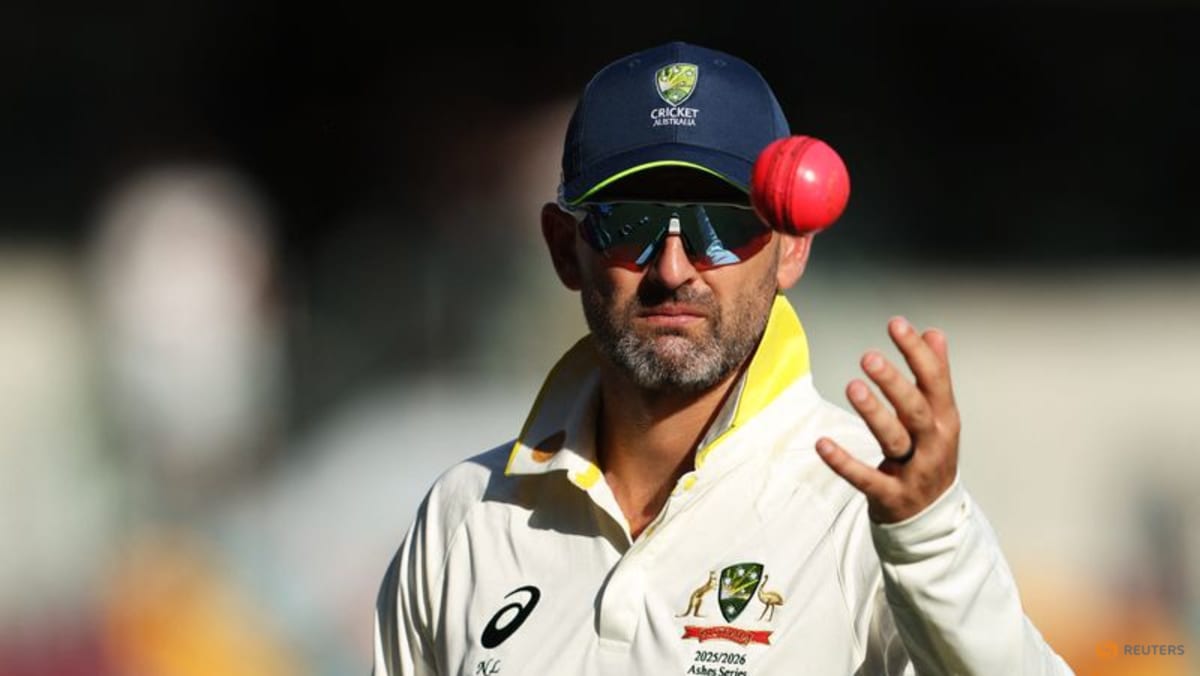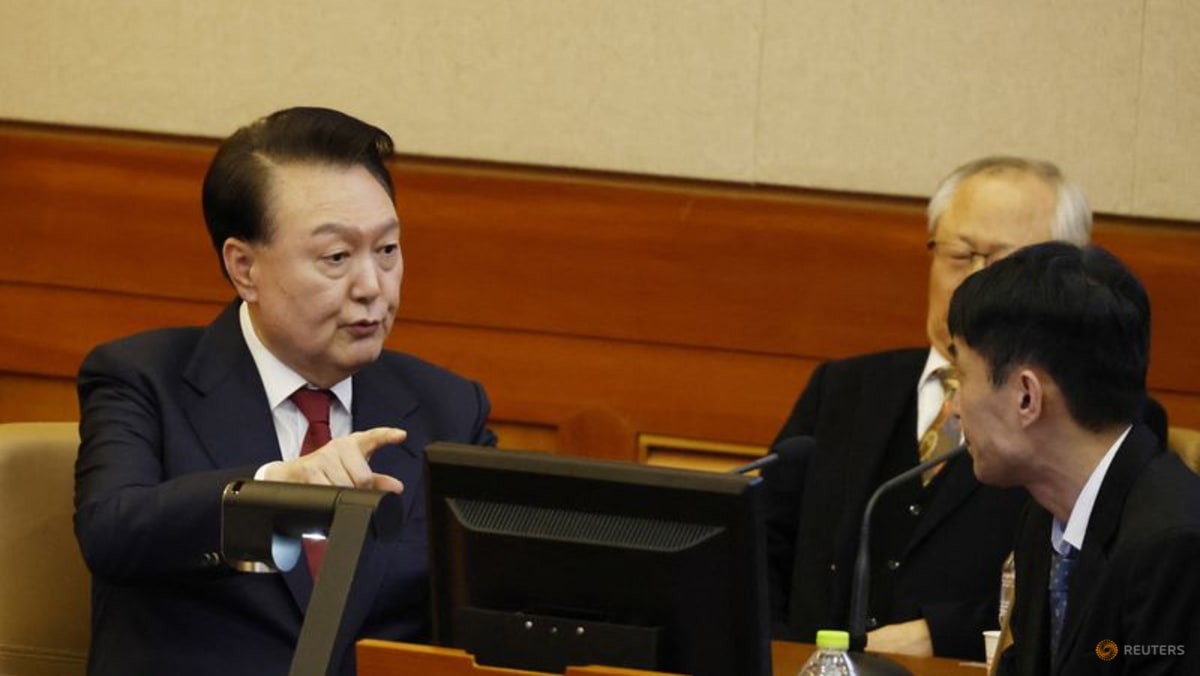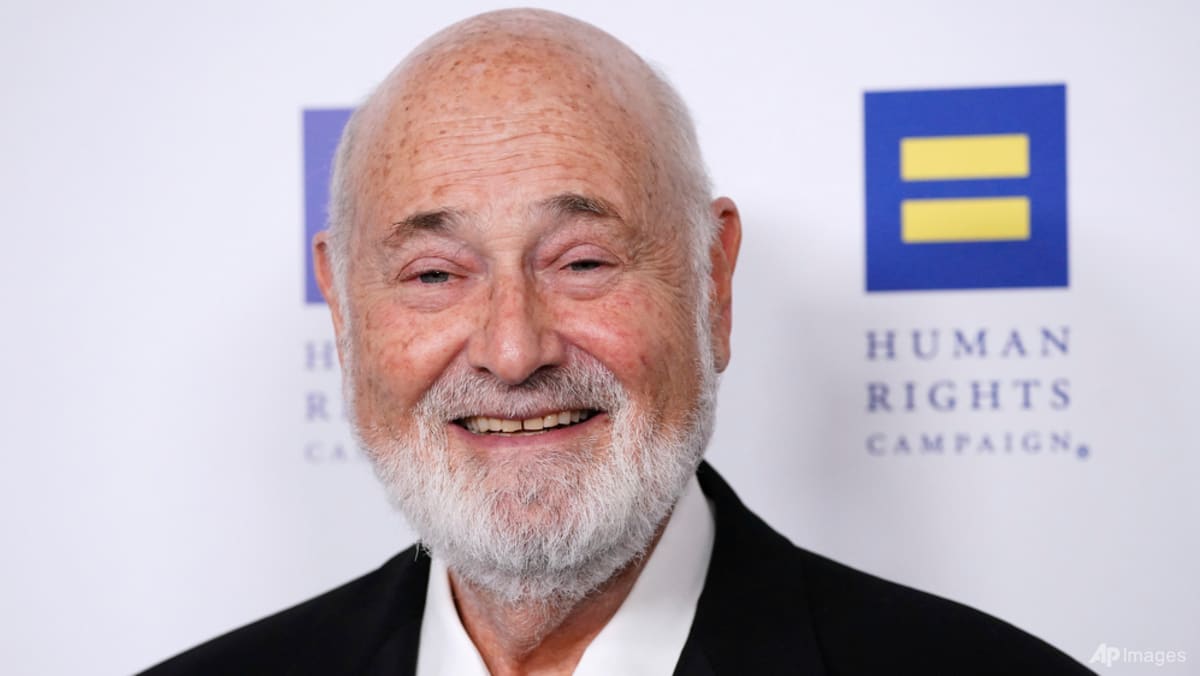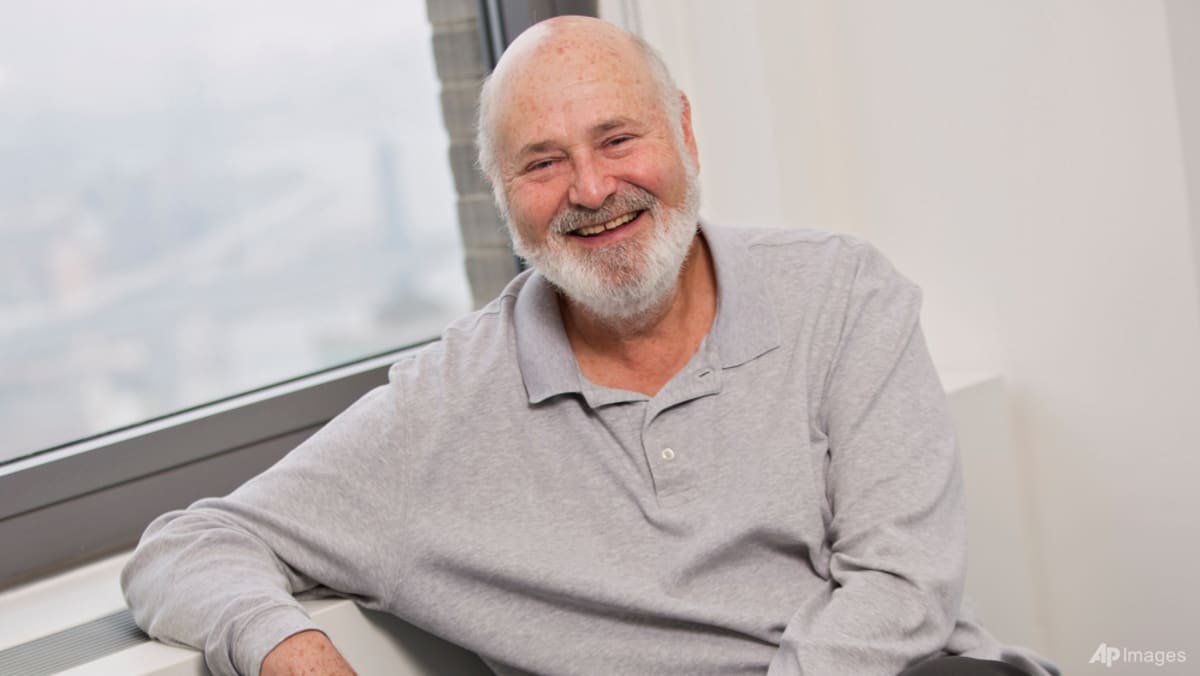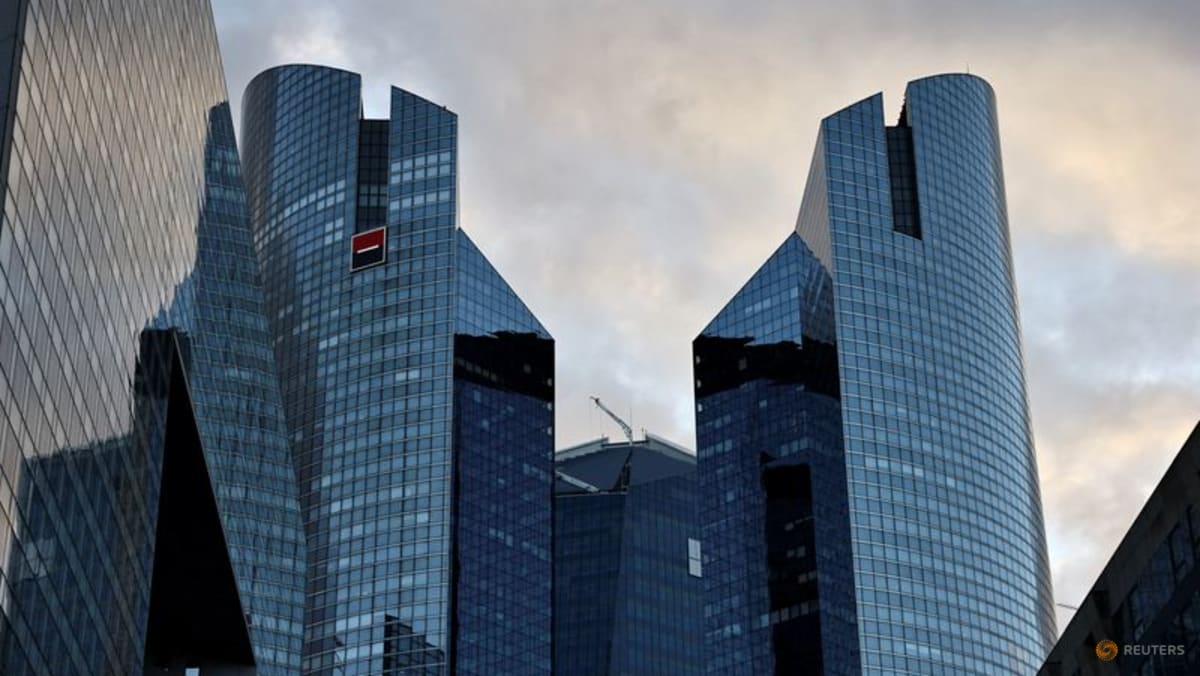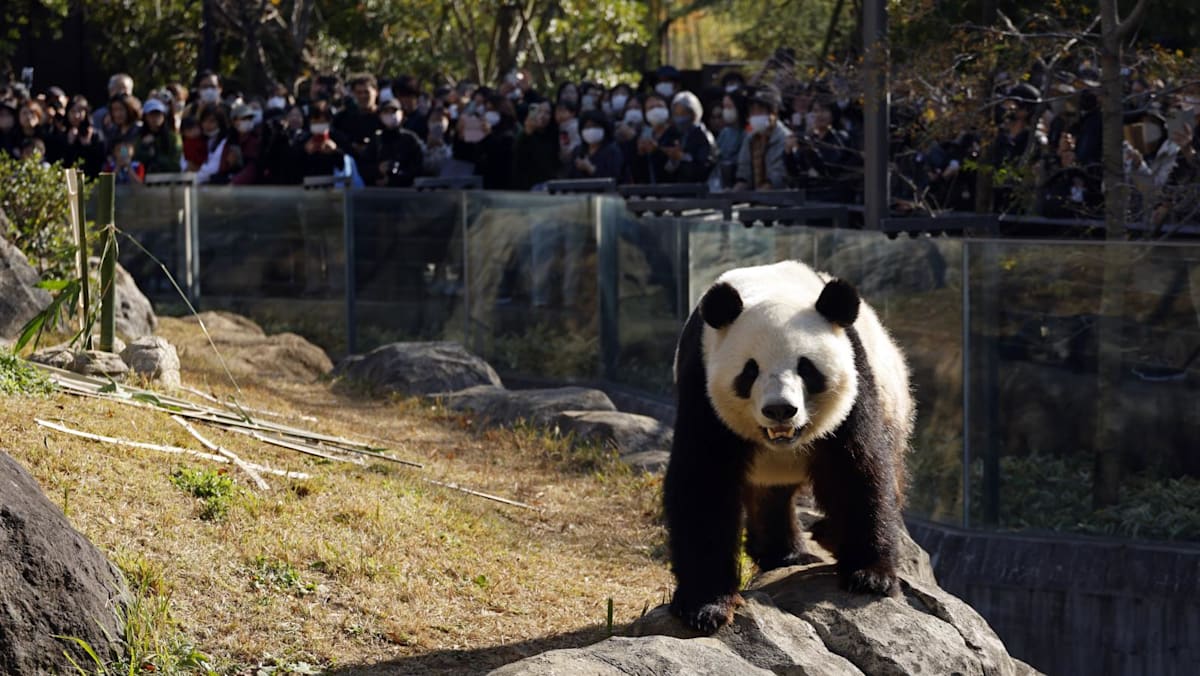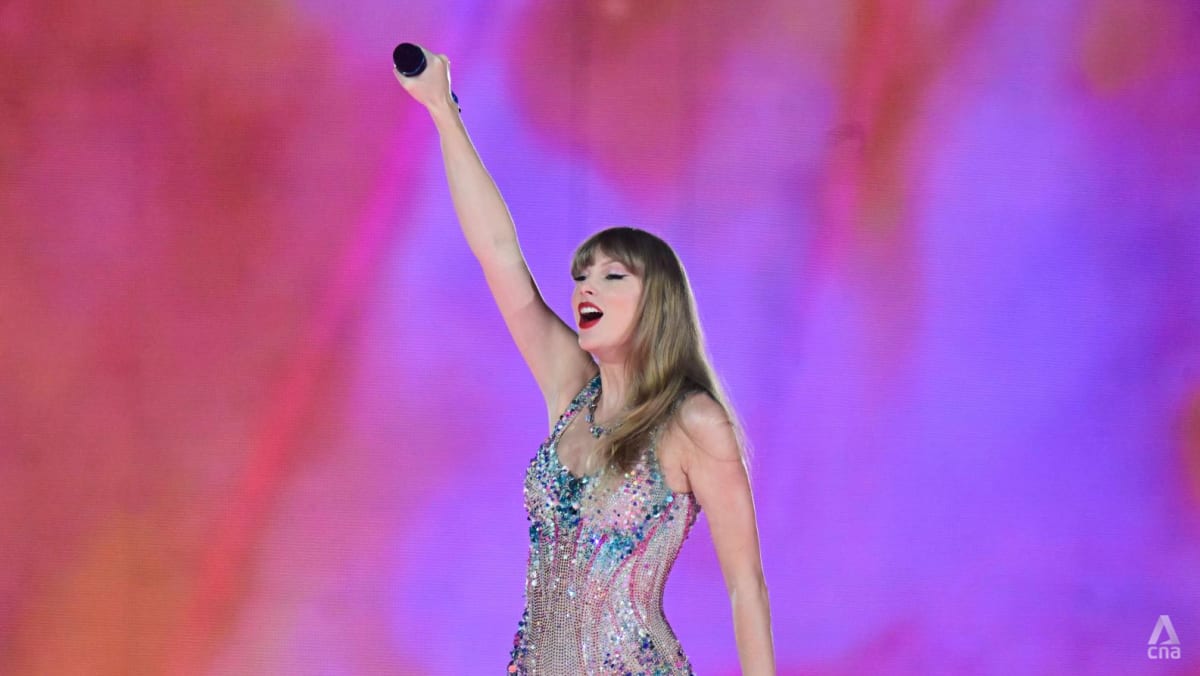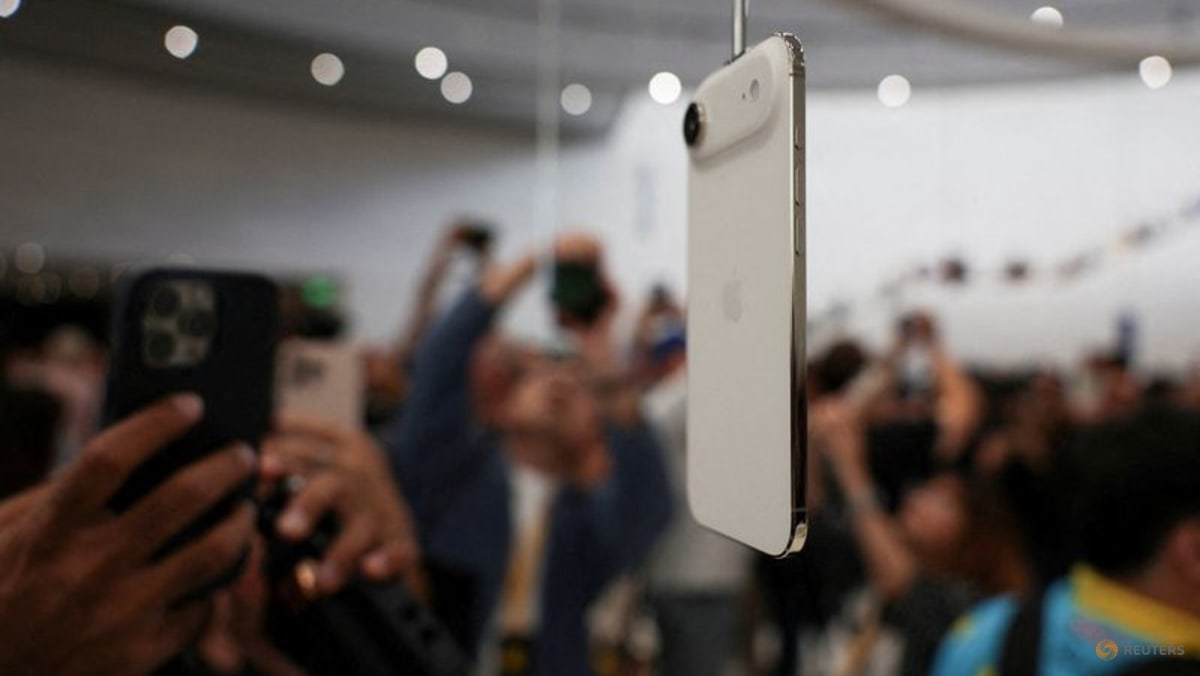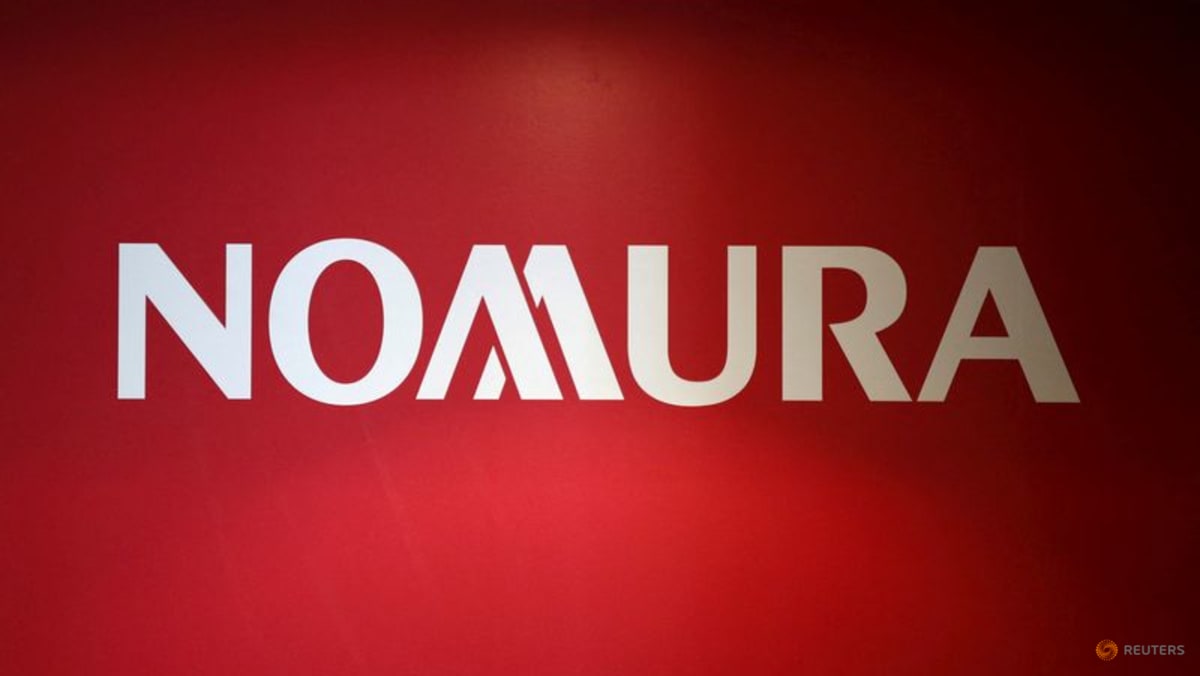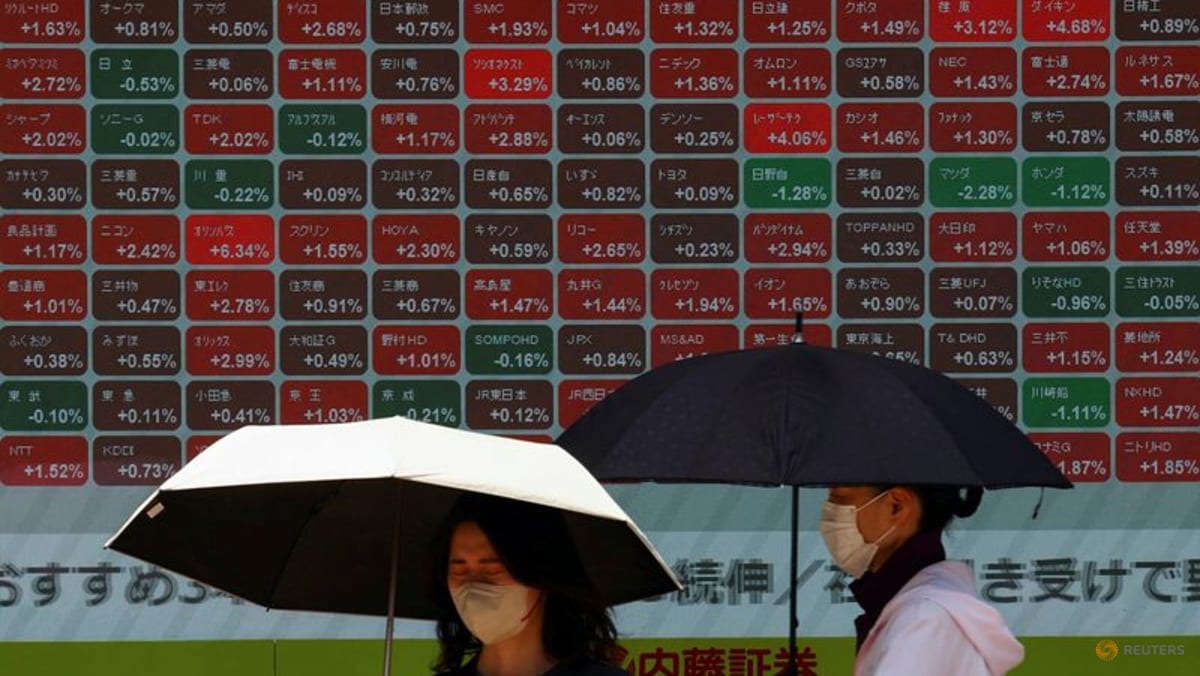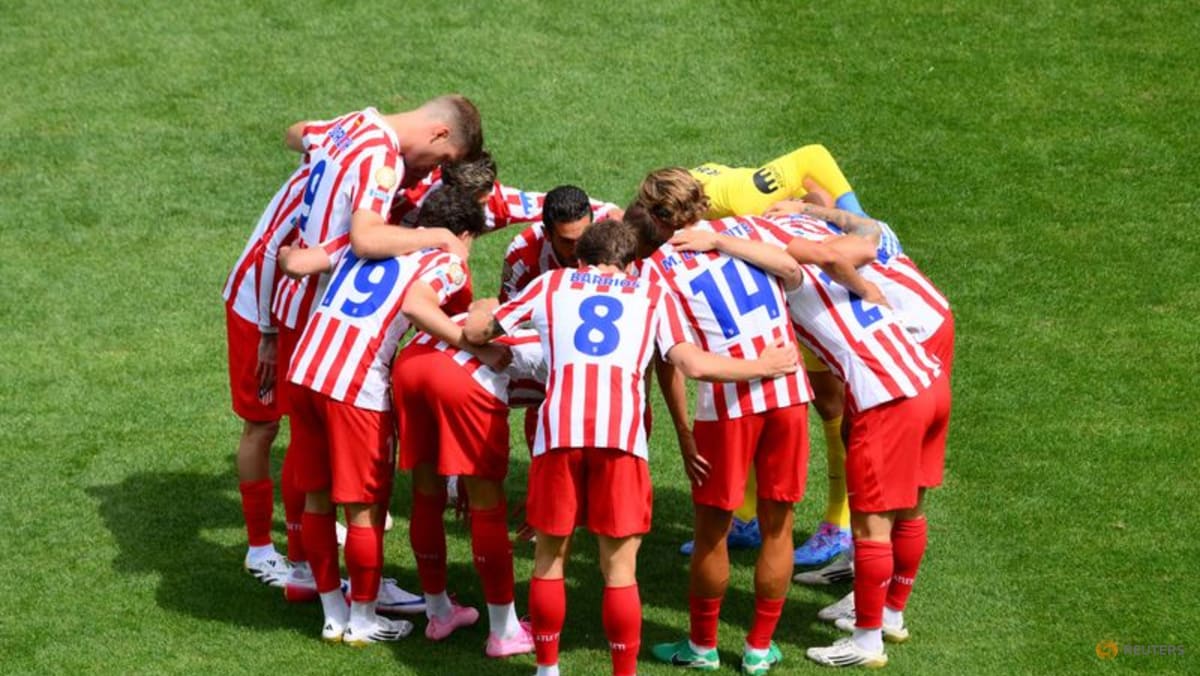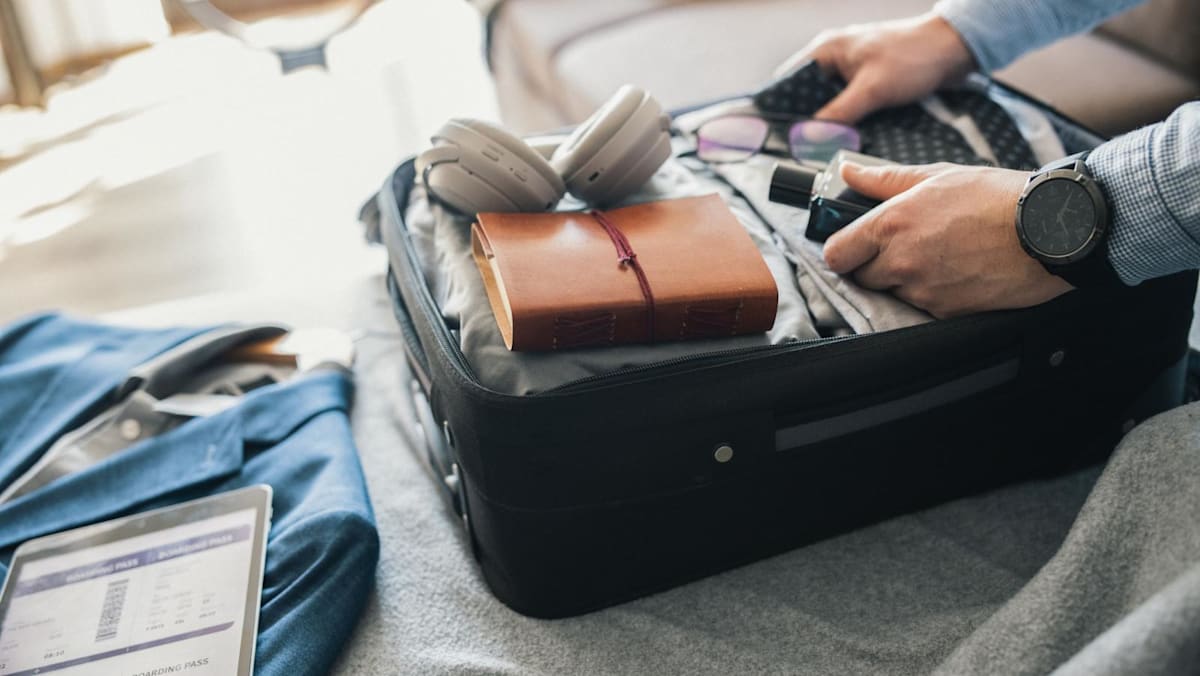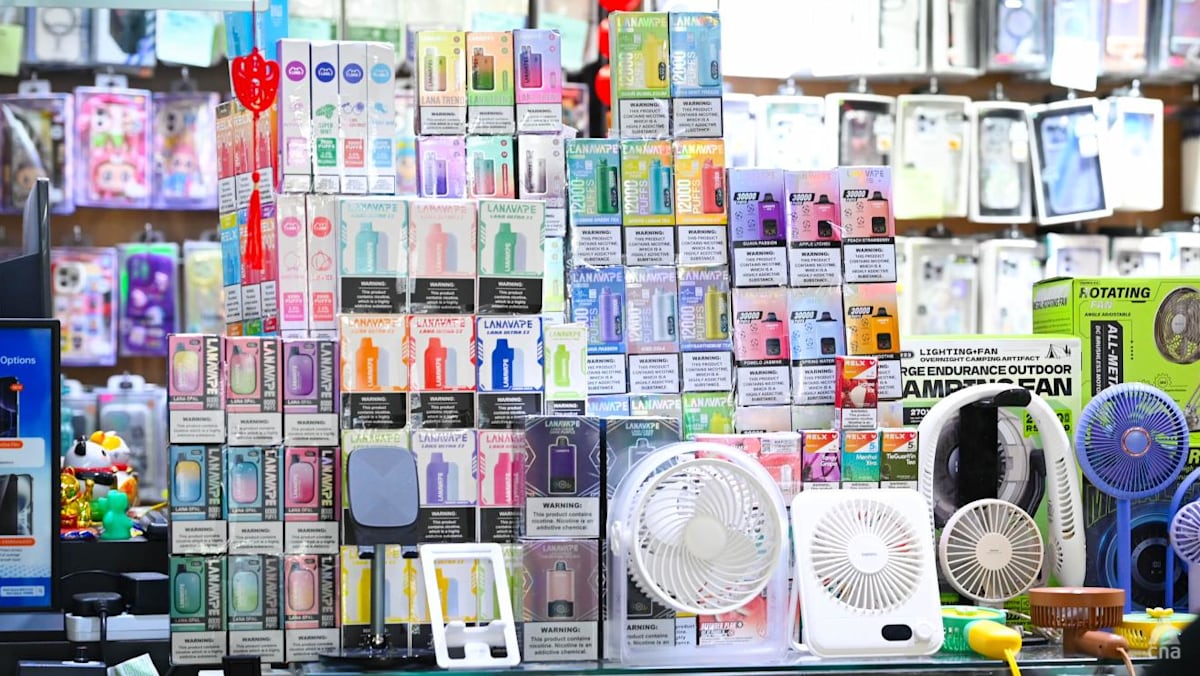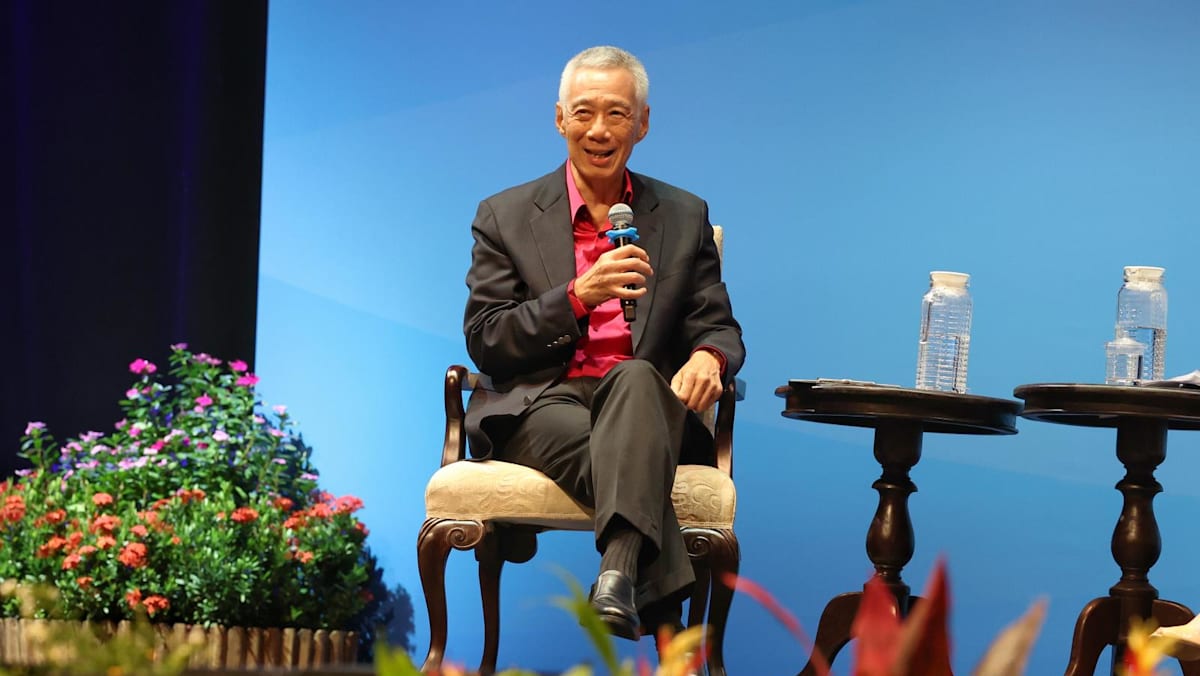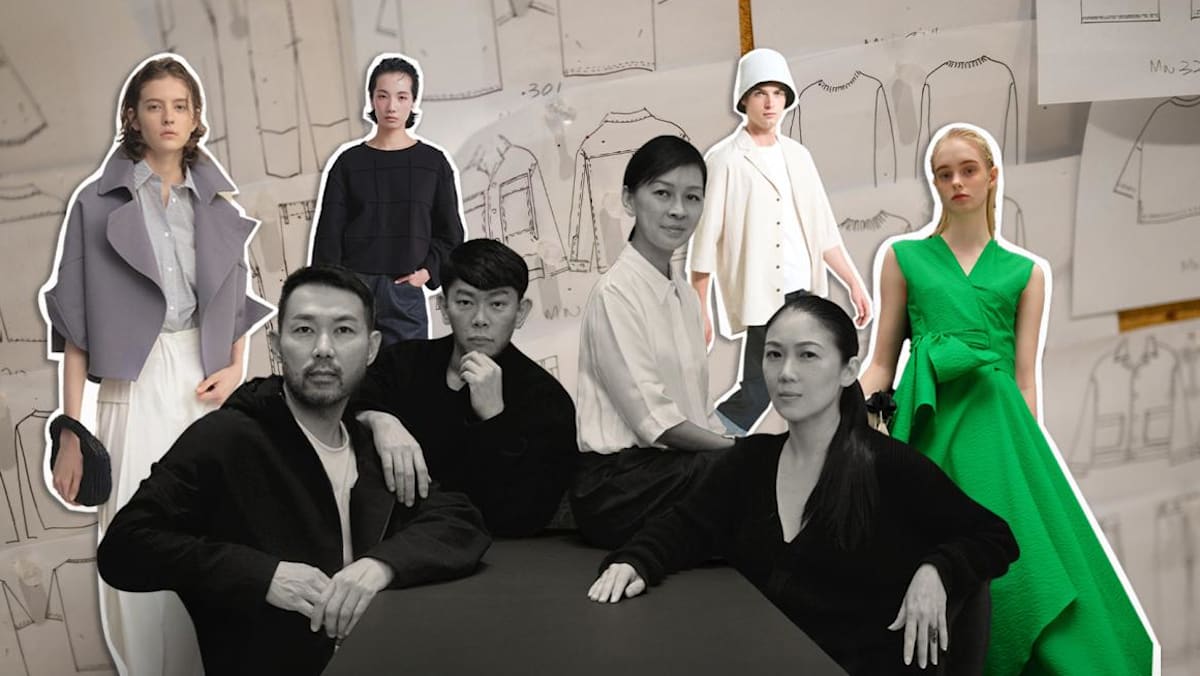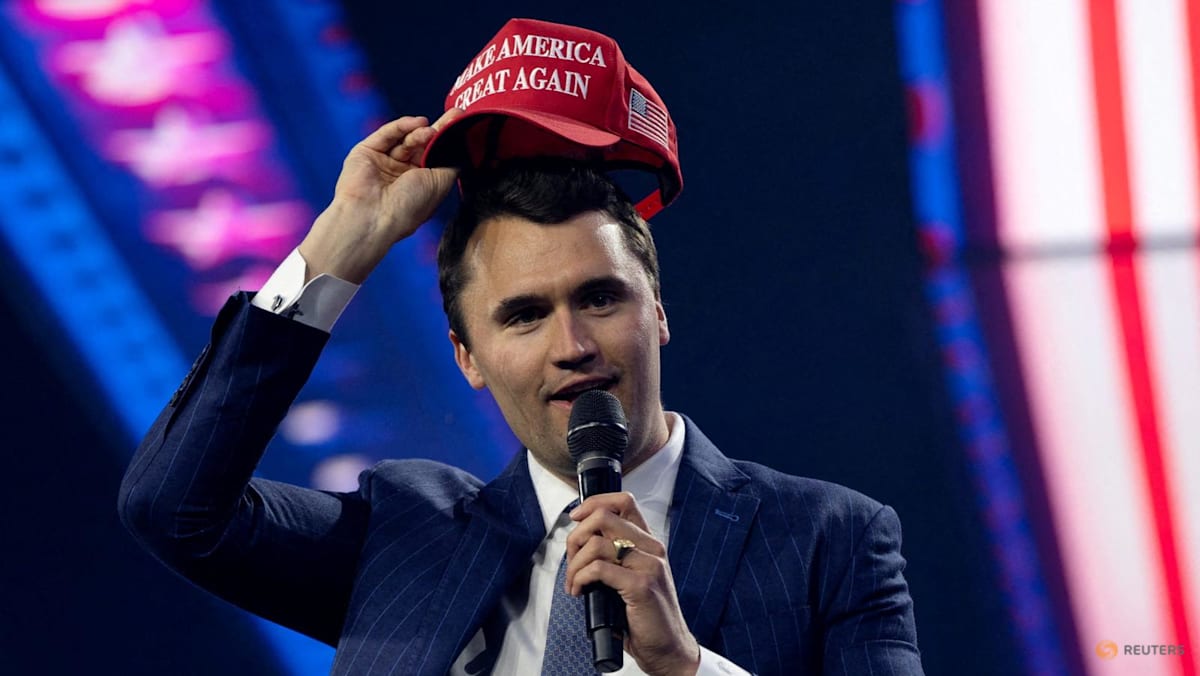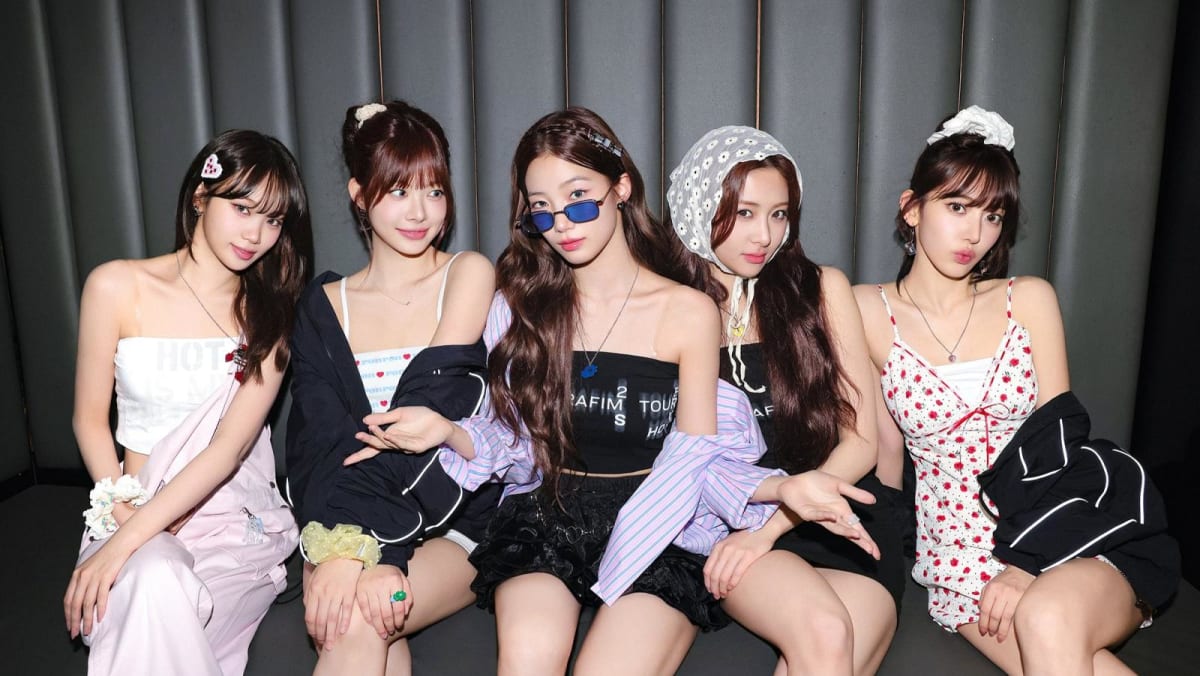Millennials say their children are great at spotting trends, leading to a host of new billion-dollar brands, says Shuli Ren for Bloomberg Opinion.
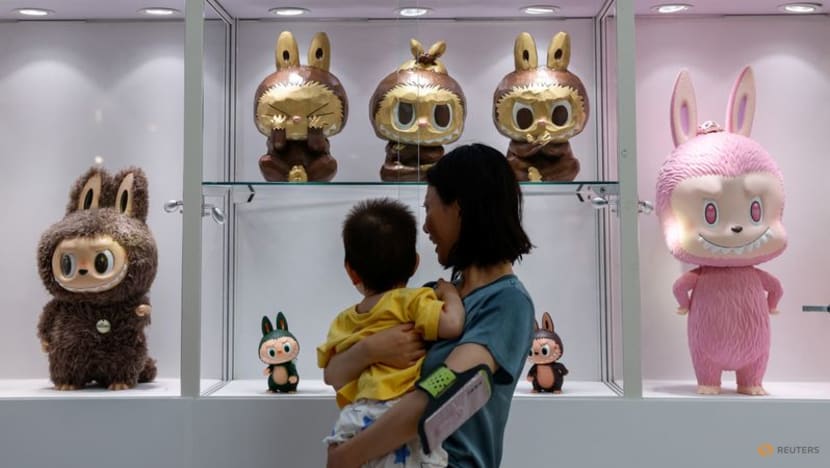
Visitors look at a set of three Labubu sculptures from a series called 'Three Wise Labubu' at a preview exhibition of Yongle International Auction, in Beijing, China June 6, 2025. The set was later sold for 510,000 yuan at the Yongle International Auction on Tuesday. (Photo: REUTERS/Tingshu Wang)
HONG KONG: Next time your teenagers have a craving for the ultra-spicy Buldak ramen or the fierce-looking Labubu toy, don’t scratch your head and question their taste. Rather, consider yourself lucky, because they are helping you spot the next billion-dollar brand before it gets on global investors’ radar.
With birth rates falling around the world, Generation Alpha, roughly born between 2010 and 2024, will have the largest economic footprint in our lifetime. An estimated US$5.3 trillion has already been spent on them, and by 2030, some will be joining the labour force and earning.
What’s different with this cohort – as opposed to Gen Z, which is into self-care and “little treats” – is that they have their parents’ ear.
Over 90 per cent of mums and dads surveyed say their children are great at finding new products, according to public relations firm DKC. In addition, participants say 42 per cent of all household spending is impacted by their children’s options.
 A mother and her teenage daughter using handphones. (Photo: iStock/ChayTee)
A mother and her teenage daughter using handphones. (Photo: iStock/ChayTee)
GOING MAINSTREAM WITH MILLENNIAL PARENTS
These parents, often millennials, have seen some tough times.
In the United States, the American dream is once again elusive: Soaring home prices are deterring first-time buyers and a cost-of-living crisis is weighing on household budgets. In China, where ageism is a huge issue, the outlook is even worse. As tech companies downsize, mid-career professionals, particularly those over 35, are hit the hardest.
It’s thus no surprise that millennials are happy to get inputs from their technology and social media-savvy children.
This dynamic puts influencer-promoted brands into play. For instance, even though Labubu’s Google search and social media trends seem to have peaked in July, its manufacturer Pop Mart’s shares continue to test record highs. This is because its clientele has shifted from young adults to well-to-do working mums who like to dangle Labubu keychains on their oversized “Big Ass Bag,” a trendy look this year.
Once this toy goes mainstream, investors can get more imaginative with profit growth. Trading at a whopping 40 times 2025 estimated earnings, Pop Mart boasts a higher market cap than Sanrio and Mattel, the owners of Hello Kitty and Barbie, combined.
Once Gen Alpha gets involved, monetisation speeds up.
Samyang Foods, whose ridiculously spicy instant noodles have captivated young Americans with “Buldak Challenge” videos, had a 34 per cent jump in first-half net profit on strong overseas sales. Its shares have risen 82 per cent this year, with investors betting on the company’s resilience to President Donald Trump’s tariffs.
FINANCIALLY LITERATE GEN ALPHA CHILDREN
It’s not all good news that this generation has sway over their parents’ wallets, however. They are picky shoppers who multinationals will have to try extra hard to convince. According to the same DKC survey, almost all participants – largely financially insecure millennials – are teaching or planning to teach their children how to budget.
China’s teenagers are even harder to please. Thanks to myriad innovative businesses that have sprung up in recent years, they’ve tried all sorts of global products.
Take the beauty category, for instance. Local retailers like Harmay sell affordable cosmetic samples such as body lotions from Le Labo Fragrances and face serums by La Prairie. Young fashionistas there can tell you in a heartbeat what’s good value for money.
This is perhaps why multinationals are paying so much for celebrity-founded companies. In May, Elf Beauty acquired Rhode, the upstart brand founded by Hailey Bieber, who has 55 million followers on Instagram, for US$1 billion.
If big corporations can’t generate the necessary buzz, they will need to rely on influencers to tell their stories. Last year, private equity accounted for nearly 40 per cent of deals in the beauty sector, in the hope that their portfolio companies can one day be resold to deep-pocketed strategic buyers.
From second-hand shopping to going sober and meat-free, young people are redefining consumption in so many ways. It’s time to listen – and get some investing tips from them.




